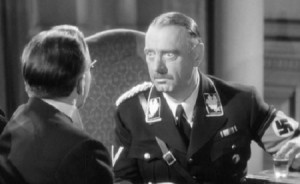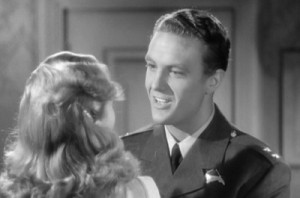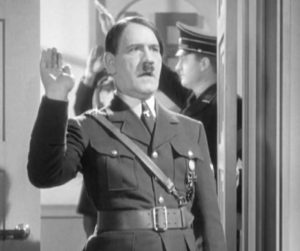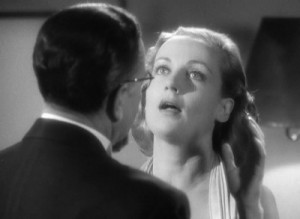
Wrap your head around this fact: Two decades before Quentin Tarantino was born, Ernst Lubitsch directed a comedy about Nazis. Unlike Tarantino, whose own Nazi film was typically bloodthirsty, Lubitsch was best known for light fare, especially sophisticated sex farces so insightful and lacking in prudery that they remain startlingly modern and funny still today. Not surprisingly, Wes Anderson recently cited To Be or Not to Be, Lubitsch’s anti-Nazi comedy, as influential. Lubitsch and Anderson share a joy in puncturing human vanity and hypocrisy, a gift for efficiency in their visual symbolism, and an appreciation for moments of pathos within otherwise humorous films. They also are in love with silliness, and this film is full of it.
To Be or Not to Be is almost as frantic in pace as Anderson’s The Grand Budapest Hotel, so I’ll just explain the basics: An acting troupe in Warsaw pretends to be Nazis to undermine a plot against the Resistance. The troupe is led by Joseph Tura (Jack Benny), a man arrogant about his acting but insecure about his wife Maria’s (Carole Lombard’s) fidelity—and rightly so: She invites an aviator (a very young Robert Stack of Unsolved Mysteries fame) to her dressing room every time her husband begins the famous speech in Hamlet that gives the movie its name. (Joseph’s not initially aware of her flirtation, though he becomes obsessed with the flier’s rudeness in leaving during his soliloquy.)
Like Joseph, the Nazis in the film are obsessed with the reactions of others to their words. When they joke about their leader’s vegetarianism or reputation, they fear their peers’ reprisals, and quickly state “Heil Hitler” to appear patriotic. The implication throughout the film is that the Nazis are much like the actors imitating them: full of insecurity and quick to express pronouncements they utter rather than feel.
The movie begins with an actor from the troupe who is playing Hitler in a play that’s about to fold. He’s anxious to prove his plausibility in the role due to a blistering attack by his director. “I don’t know. It’s not convincing,” the director says, looking at the clothes and makeup meant to imitate the Führer. “To me, he’s just a man with a little mustache.”
“But so is Hitler,” the actor responds defensively.
As in most of Lubitsch’s films, the marital sexual farce is highly entertaining. In a typical moment, Maria’s assistant quips, “What a husband doesn’t know won’t hurt his wife.” But this farce goes beyond the main couple. The Nazis are not only fooled by these actors’ poor performances as Gestapo, but are also easily convinced that the beautiful Maria will be captivated by their power. They repeat “Heil Hitler” not only as a defense or conversation filler, but as a pickup line. Clearly, Lubitsch feels these Nazis are using their lethal reputation as a substitute for manhood. “And before the evening is over,” a Nazi spy says suggestively to Maria, “I’m sure you’ll say ‘Heil, Hitler.’” (I gasped when I heard this—Did I just hear a racy use of Hitler?) Sure enough, after he kisses her, Maria replies, “Heil Hitler” in a loaded, sexy tone in imitation of the man she’s duping.
Maria’s faux seduction mimics her earlier comforting of her needy spouse, though this time it’s for a worthier cause. But just as with Joseph, Maria’s cooing words mean little. She proves that it’s a man of action, not the Nazis or her narcissistic husband, who will likely win her bed in the end. When the RAF flier (Stack) gushes about the thrill of meeting an actress, Maria breathily replies, “Lieutenant, this is the first time I’ve ever met a man who could drop three tons of dynamite in two minutes.”
As for the Nazis, the actors do occasionally falter against them, mainly due to their inability to get over their egos. But there’s something gallant about these blundering Warsaw patriots, and one in particular, just as with M. Gustave of The Grand Budapest Hotel. This troupe of actors is goofy and flawed and outrageously vain. But as Lubitsch implies in the film, what act isn’t noble, against such enemies as these?




Nice! I wonder if you have ever seen Mel Brook’s remake, it’s quite funny as well 🙂
No, I’d like to! Thanks for the recommendation. I read a negative review of it at some point, and assumed it wasn’t good. But I should have known better. It’s Mel Brooks, after all:)
Leah